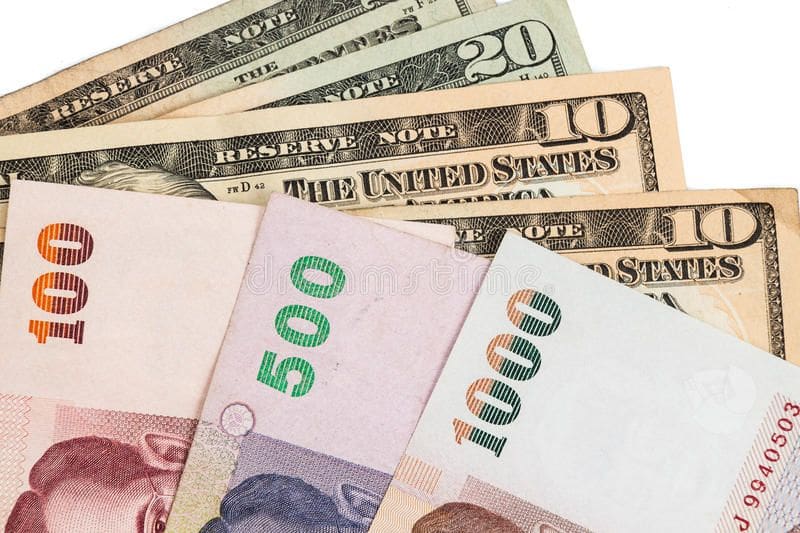Bearish bets on the Thai baht extended on risks around recession, the Chinese economy, and inflation, while short bets on most Asian currencies eased slightly but remained firmly around multi-month highs, a Reuters poll showed on Thursday.
The fortnightly poll of 13 analysts showed short bets on the Thai baht were the highest since January 2018, having steadily built up since early-March when the Ukraine war set off a series of factors and pressured the tourism-reliant, net oil importing country.
Thailand, Southeast Asia's second-largest economy, is among the laggards on the policy normalisation bandwagon, which its peers and major central banks have hopped on since long, further elevating the risks of a negative impact from rising costs amid weak activity in top regional economy China.
The Thai currency, the most shorted among Asian units, has depreciated about 14% since the Russia-Ukraine conflict, and 10.3% so far this year, placing it at the bottom of the rung with the Indian rupee and South Korean won .
"Market players remain short on the Thai baht vs the U.S. dollar until they are really certain that the U.S. Federal Reserve will pass the peak of hawkishness," Poon Panichpibool, a market strategist with Krung Thai Bank said.
But, he said that weakness in the dollar after the Fed meeting would encourage investors to be bullish on the baht, relying on the recent green shoots observed in tourism and the economy.
The Fed overnight delivered another 75 basis points (bps) rate hike, and reiterated its resolve against stinging inflation in the world's biggest economy even at the risk of economic weakness and a slowing jobs market. read more
Analysts at Maybank, however, cautioned that although the greenback weakened after the Fed's move, Chair Jerome Powell is "still hawkish"; that could keep the Fed on an aggressive tightening path, ultimately continuing to support the safe haven dollar.
The poll's responses were collated before the Fed hike.
Elsewhere, sentiment for the Philippine peso improved over the past two weeks after the Bangko Sentral ng Pilipinas in mid-July raised its key interest rates by 75 bps in an off-cycle move. read more
Chinese yuan , seen as a safer bet among Asian currencies, was the second-least shorted currency in the region, while short positions on the Indian rupee, Indonesian rupiah , and the Malaysian ringgit moderated slightly but remained firm.
The Asian currency positioning poll is focused on what analysts and fund managers believe are the current market positions in nine Asian emerging market currencies: the Chinese yuan, South Korean won, Singapore dollar, Indonesian rupiah, Taiwan dollar, Indian rupee, Philippine peso, Malaysian ringgit and the Thai baht.
The poll uses estimates of net long or short positions on a scale of minus 3 to plus 3. A score of plus 3 indicates the market is significantly long on U.S. dollars.










